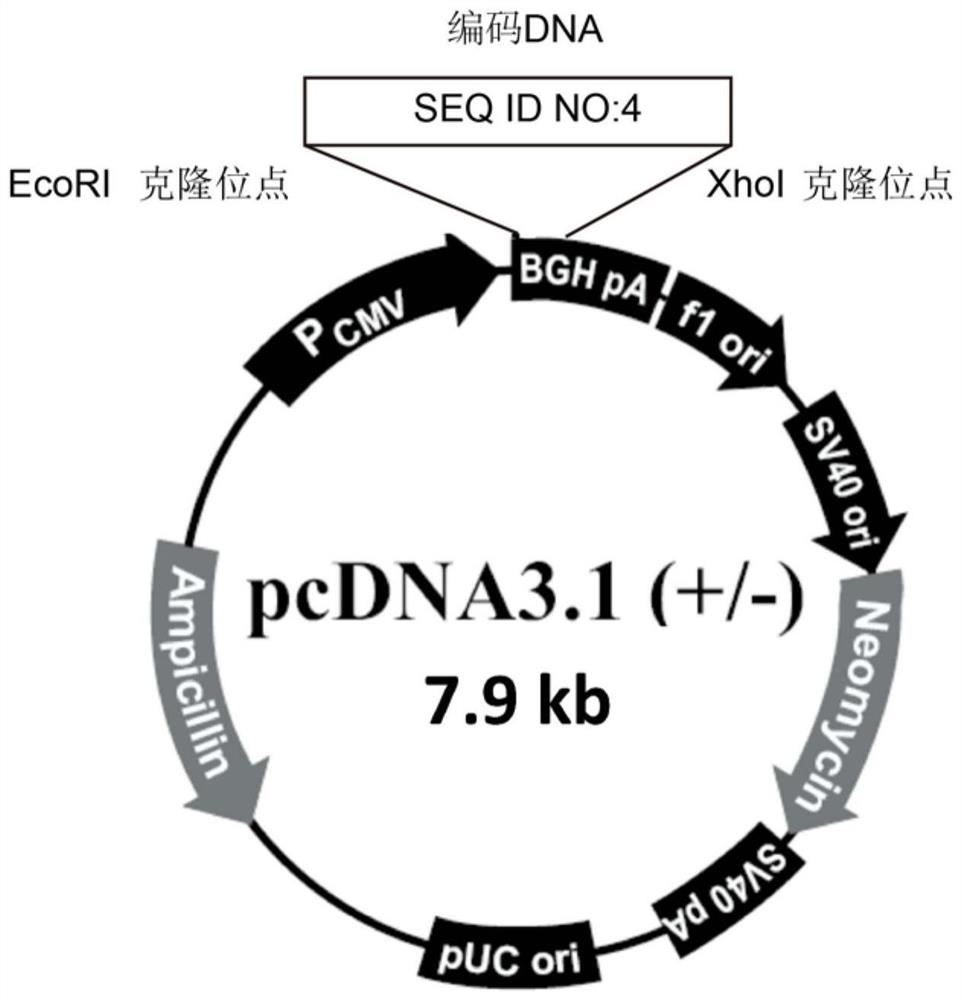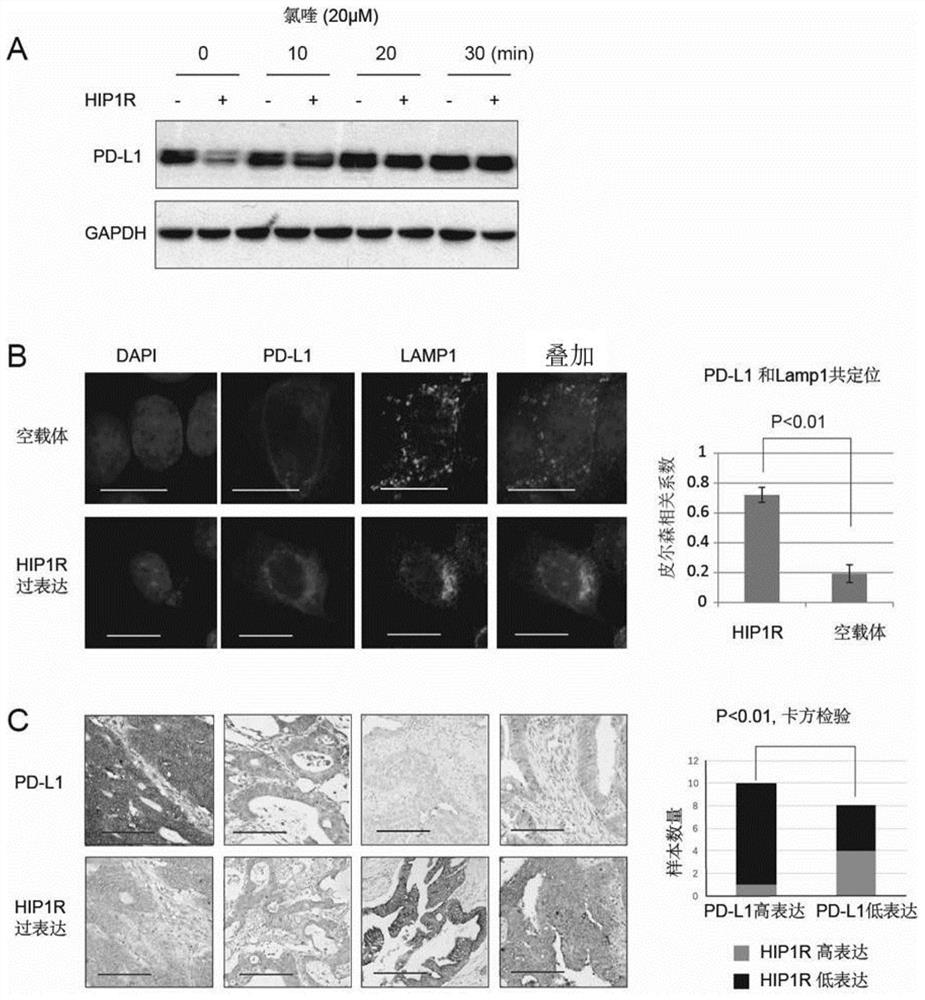A kind of polypeptide targeting pd-l1 and its application
A PD-L1, peptide targeting technology, applied in applications, medical preparations containing active ingredients, specific peptides, etc., can solve problems such as poor efficacy, improve tumor immunity, improve inhibition, and reduce interactions. Effect
- Summary
- Abstract
- Description
- Claims
- Application Information
AI Technical Summary
Problems solved by technology
Method used
Image
Examples
Embodiment 1
[0032] Example 1. Confirmation of the PD-L1-interacting amino acid sequence of the PD-L1-targeting polypeptide and the key amino acid sequence targeting lysosome degradation
[0033] 1. Confirm that HIP1R promotes the degradation of PD-L1 through lysosomal pathway:
[0034] HIP1R eukaryotic expression vector was transfected in human colorectal cancer cells HCT116, and the expression level of PD-L1 protein was detected by immunoblotting method with PD-L1 specific antibody, and it was found that HIP1R significantly reduced the expression of PD-L1 protein The effect of HIP1R was effectively inhibited by blocking the lysosomal degradation pathway with different doses of chloroquine ( image 3 A). The cells were treated with chloroquine, a specific inhibitor of the lysosomal degradation pathway (chloroquine concentrations were 5, 10, 20, 40 μM), and it was found that HIP1R could be inhibited in a dose-dependent manner ( image 3 A). Such as image 3 As shown in B, the overexpre...
Embodiment 2
[0040] Example 2. Construction of PD-L1-targeting polypeptide and its functional verification
[0041] 1. Construction of peptides targeting PD-L1:
[0042] According to the previous experiments, the (784-807) sequence of HIP1R binds to PD-L1, while the HIP1R (1059-1068) sequence targets lysosomes, which can promote the degradation of PD-L1 protein in the lysosomal pathway. Utilizing the above original findings, a polypeptide that binds to PD-L1 and targets lysosomal degradation was designed, namely HIP1R(784-807)-(966-979), which was named PD-LYSO for the convenience of the following description. Its composition structure and specific sequence are as follows Image 6 shown. At the same time, as a control, PD-LYSO (mut) was constructed, which lacked part of the N-terminal amino acid sequence of PD-LYSO, and PD-LYSO (plus), which added part of the amino acid sequence to the N-terminal of PD-LYSO. Image 6 It is a gel electrophoresis image verifying the actual effect of the d...
Embodiment 3
[0046] Example 3. Functional verification of PD-L1-targeting polypeptides in reducing PD-L1 expression in cells
[0047] 1. The verification that peptides targeting PD-L1 reduce cancer cell binding to PD-1
[0048] Peptides targeting PD-L1 can reduce the binding ability of PD-L1 on the surface of tumor cells. After the tumor cells were treated with peptides for 24 hours, they were incubated with the PD-1 protein fused to the Fc region of the antibody to bind, and then the amount of bound PD-1 was detected by anti-PD-1 antibody flow cytometry. The statistical results are as follows: Figure 8 shown. Tumor cells bind to PD-1 on the surface of T cells through PD-L1 expressed on the cell surface, thereby inhibiting the killing effect of T cells. Therefore, the ability of PD-L1 targeting polypeptide (PD-LYSO) to bind PD-1 to cancer cells was first verified. After the tumor cells were treated with the polypeptide for 24 hours, they were incubated with the PD-1 protein fused to th...
PUM
 Login to View More
Login to View More Abstract
Description
Claims
Application Information
 Login to View More
Login to View More - R&D
- Intellectual Property
- Life Sciences
- Materials
- Tech Scout
- Unparalleled Data Quality
- Higher Quality Content
- 60% Fewer Hallucinations
Browse by: Latest US Patents, China's latest patents, Technical Efficacy Thesaurus, Application Domain, Technology Topic, Popular Technical Reports.
© 2025 PatSnap. All rights reserved.Legal|Privacy policy|Modern Slavery Act Transparency Statement|Sitemap|About US| Contact US: help@patsnap.com



